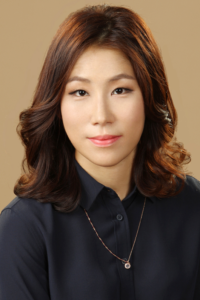miCRo: “Have You Eaten Rice” by Jin Su Joo
4 Minutes Read Time

Assistant Editor Emily Rose Cole: In Jin Su Joo’s “Have You Eaten Rice” we learn about several key relationships in the speaker’s life through the lens of rice: its saltiness the night she broke up with her ex, its sweetness when her mother cooks it, the lusciousness that tastes like self-sufficiency when she makes it herself in her rice cooker. By juxtaposing these relationships with Korean idioms, Joo underscores how this staple food bonds families and cultures together. For Joo, and so many others, rice doesn’t just feed—it nourishes.
To hear Jin Su read her essay, click below:
Have You Eaten Rice
The first kitchen appliance I bought was an electronic rice cooker. A Cuckoo brand, same as my mother’s and probably the majority of Korean households’, it is still the most expensive thing in my kitchen. While not a connoisseur, I appreciate good rice and know that it makes up for my poor cooking skills. My Cuckoo produces luscious rice every time, even when I throw in peas, beans, barley, millet, and whatever else I fancy. It speaks to you when it starts cooking and when it’s about to let out steam and then sings a little Cuckoo song when it’s done. It also keeps rice warm and moist for days. Reheated rice is never the same. In Korean, cold rice is an idiom for a trivialized person or thing.
Rice gets sweet if you chew it long enough. If you cry while eating it, the sweetness mixes with the briny saliva and chokes the throat. Home for lunch after botched exams in middle school, I would swallow sweet, salty, sticky rice, mulling over the mistakes made. Rice was sweet and salty the morning after the drunken night when my ex and I broke up too. I couldn’t remember how and why we argued, and I was hungry. While he went out for a walk, I mixed a soft-boiled egg and a dollop of soy sauce into a bowl of rice, just the way my mom used to when I was little. The slimy yolk helped push it all down. We had broken up several times before, and I was sure this was the last time.
Whenever I visit my parents, my mom packs me homemade Korean dishes to take home. When I lived alone, I owed hundreds of warm meals to my mom and my rice cooker. Now I live with my partner who loves to cook, has (almost) mastered Korean cooking, and sometimes dances to the Cuckoo song.
The last time I was home, I told my mom I didn’t really need to bring food back anymore. She insisted that I take rice porridge. You can have that for breakfast instead of oatmeal. He doesn’t make you breakfast, does he? It didn’t matter to her that my rice cooker has a porridge function just like hers. She didn’t use her machine. Instead, she stood over the stove all morning, stirring glutinous rice in fish and seaweed broth, until the rice became viscous and the tiny pieces of onions, zucchinis, and carrots disintegrated into speckles. She then divided up the porridge into a dozen single-serving containers and froze it for three days so that it wouldn’t melt during my trip back to Canada.
The word for rice and meal is the same in Korean, and asking whether you’ve eaten is a common greeting. So “have you eaten rice” often means “are you doing well.” On the days I ate my mom’s porridge, I let her know I had, indeed, eaten rice.
Jin Su Joo is a writer based in Toronto. She was longlisted for the 2020 Humber Literary Review/CNFC Creative Nonfiction Contest.
For more miCRo pieces, [button link=”https://www.cincinnatireview.com/micro/”] CLICK HERE[/button]

